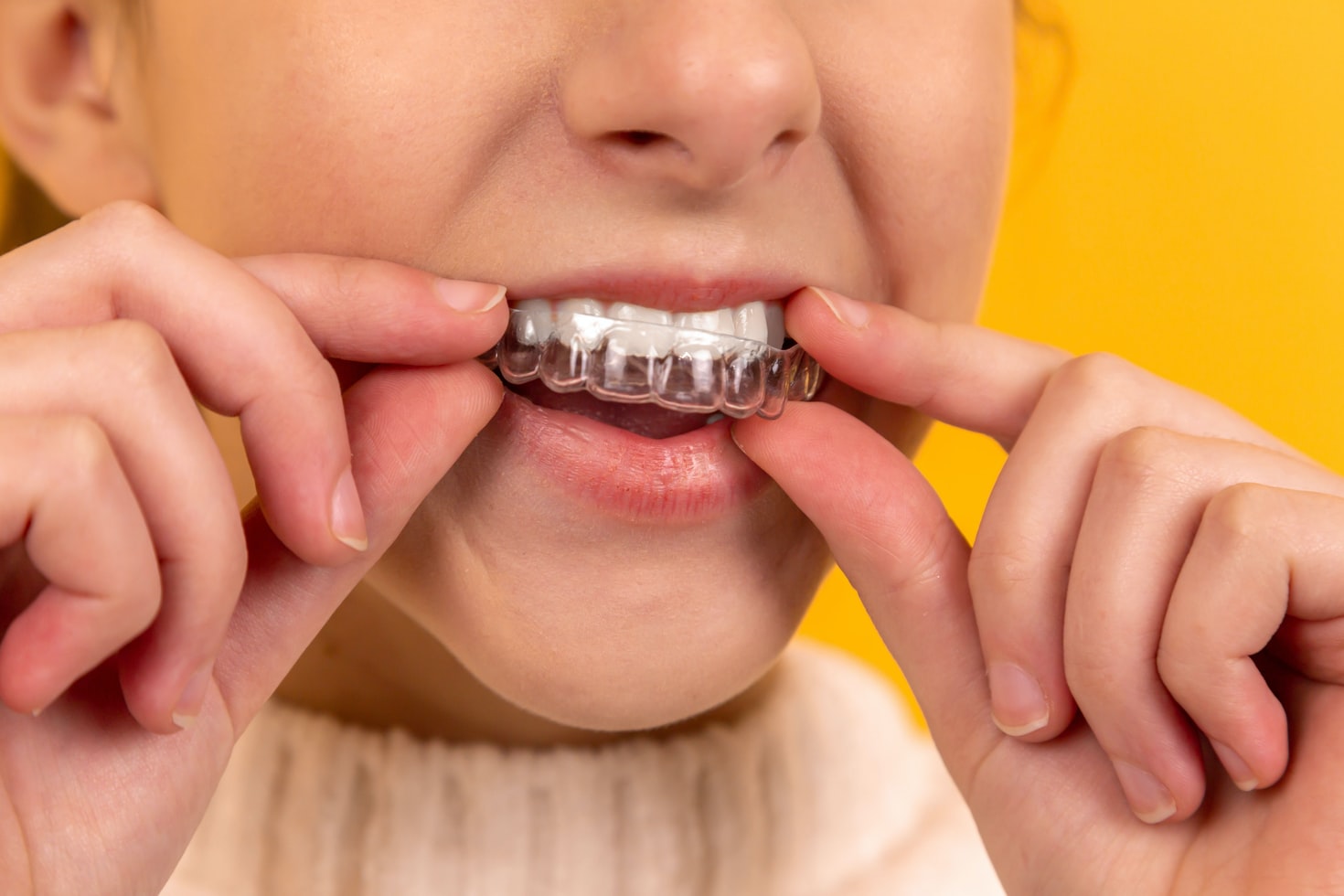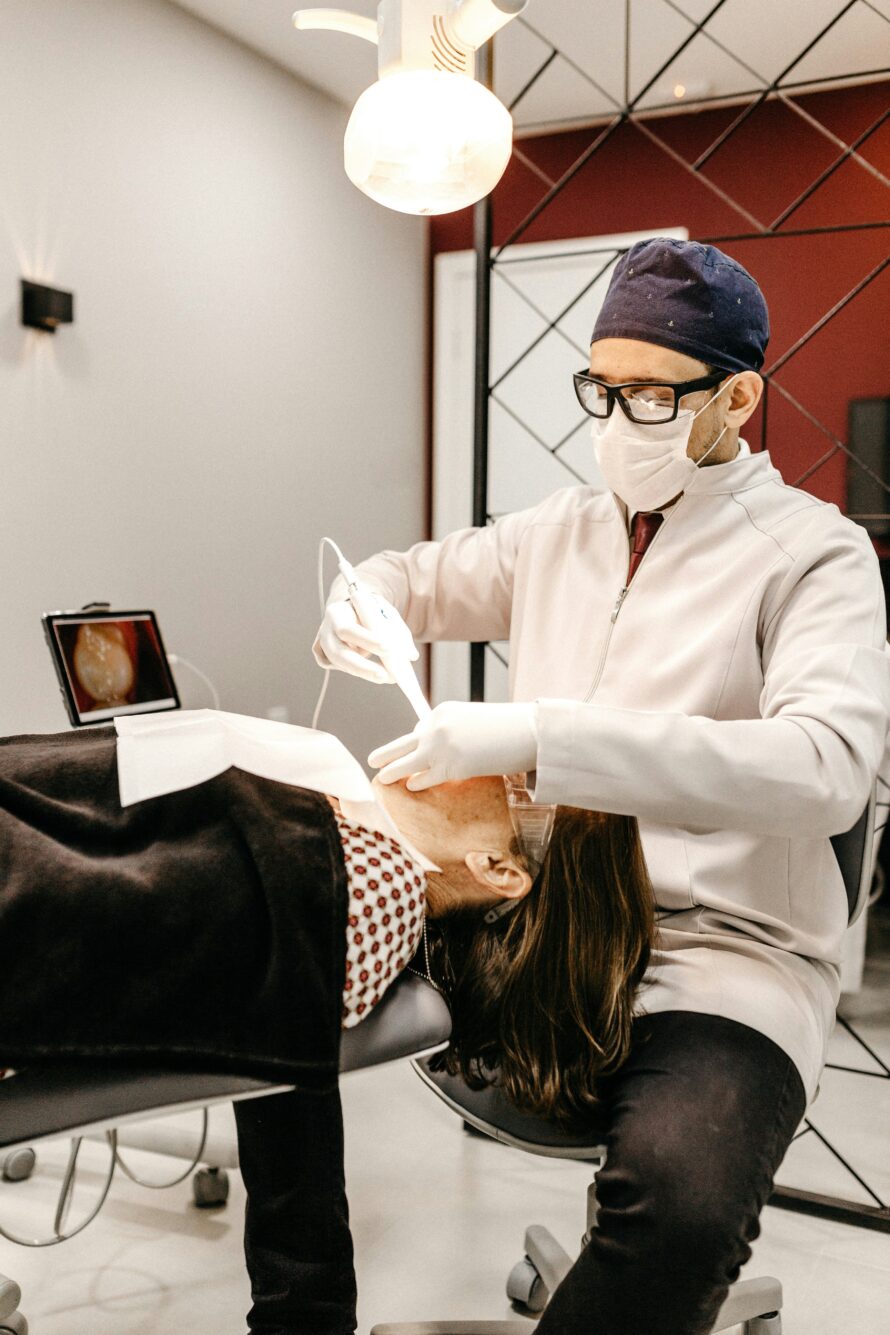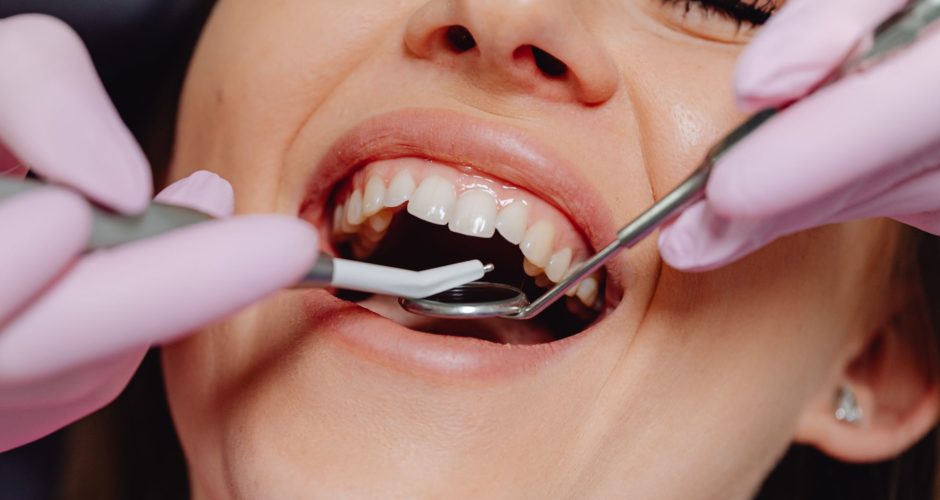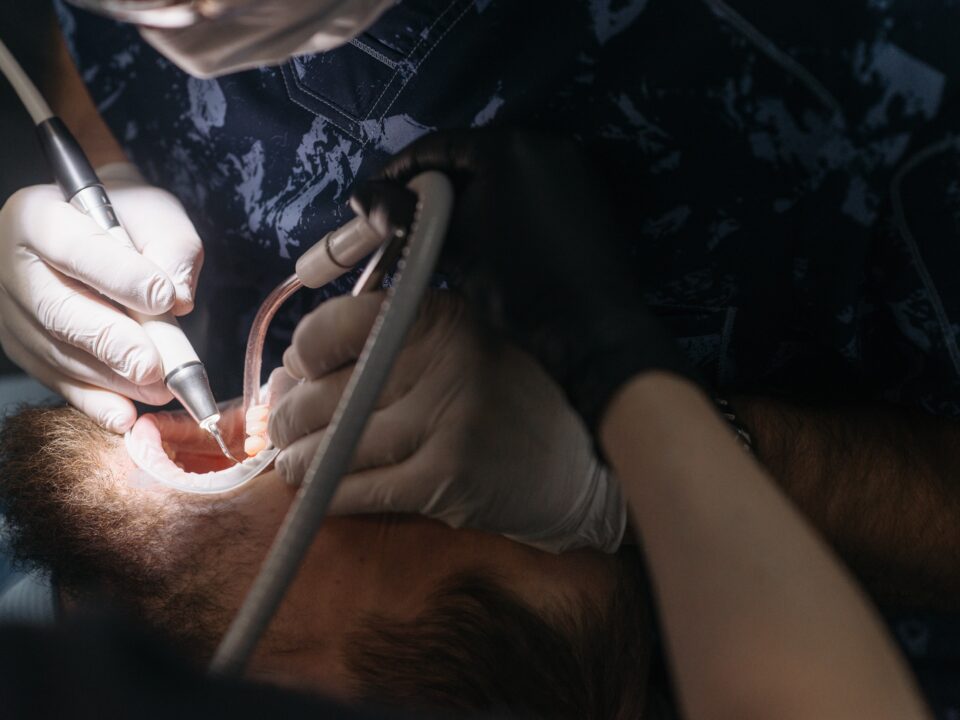
How to Whiten Your Teeth
December 22, 2021
Four Signs You Might Need a New Retainer
March 1, 2022Suffering from severe gum disease? You may want to learn more about gingival flap surgery (also known as gum flap surgery or periodontal flap surgert). When periodontitis cannot be treated with antibiotics or root planing and scaling, the bones are damaged and a flap procedure may be necessary. Without further action, you could be in for a lot of pain and even potential tooth loss.
Although gum flap surgery isn’t a cure for periodontitis, the procedure cleans the roots of the tooth and repairs damage, making it easier to care for your periodontal health.
[Related: Periodontal Disease and Cardiovascular Health]
Read on to find out more about gingival gum surgery and aftercare.
Gingival Flap Surgery Procedure

Numbing the Area:
The dentist or oral surgeon will apply a local anesthetic to numb the gums around the tooth.
Cleaning and Repair:
- Gently lift sections of the gums to clean the tooth roots.
- Remove inflamed gum tissue.
- Repair damaged bone using grafting material.
Closing the Flaps:
The gums are sutured back into place.
Final Steps: Gauze is applied to stop bleeding, and you’ll receive detailed aftercare instructions before heading home.
Gingival Flap Surgery Aftercare
After your surgery, recovery will only take an average of two to three days if you follow home care instructions from your dentist or oral surgeon.
Your dentist will remove the stitches and check over the area to make sure you’re healing correctly.
Here are some general suggestions for aftercare to speed up your recovery:
- Rinse your mouth with warm salt water after the first day. You may do this multiple times to reduce swelling and relieve pain.
- Take pain medications as prescribed by your dentist or oral surgeon.
- Change your gauze and bandages frequently.
- Until the area is healed. avoid hard and crunchy foods.Stick to foods like pudding, jello, or broth-heavy soup (make sure hot foods are cool before eating).
- Do not smoke.
- Do not use a straw.
- Use an ice-pack to ease swelling and relieve pain.
- Be extra gentle when you brush your teeth and tongue.
- Prop your head and neck up with pillows and avoid lying flat to put an end to bleeding quicker.
[Related: New Year’s Resolutions for a Happy and Healthy Smile]
What Are The Benefits of Gingival Flap Surgery?
- Effective Treatment: Stops the progression of periodontitis and restores gum health.
- Pain Relief: Alleviates discomfort caused by gum disease.
- Reversal of Symptoms: Reduces swollen and discolored gums and eliminates bad breath.
- Improved Quality of Life: Enhances overall oral health and boosts confidence.
- Cost and Time Savings: Helps prevent the need for future corrective procedures.

Keep Your Teeth and Gums in Great Shape with Cascadia Dental Specialists
Even after periodontal surgery you will need to continue to maintain the health of your teeth and gums.
Remember to brush your teeth twice a day, floss regularly, and commit to seeing your dentist for periodic cleaning and exams.
Contact Cascadia Dental Specialists today for a consultation, or to find out more about gingival flap surgery and periodontal maintenance.
Featured image via Pexels and Unsplash





